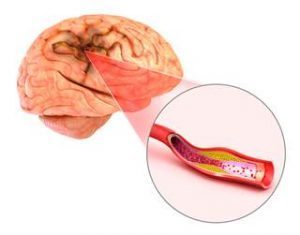- Home
- Editorial
- News
- Practice Guidelines
- Anesthesiology Guidelines
- Cancer Guidelines
- Cardiac Sciences Guidelines
- Critical Care Guidelines
- Dentistry Guidelines
- Dermatology Guidelines
- Diabetes and Endo Guidelines
- Diagnostics Guidelines
- ENT Guidelines
- Featured Practice Guidelines
- Gastroenterology Guidelines
- Geriatrics Guidelines
- Medicine Guidelines
- Nephrology Guidelines
- Neurosciences Guidelines
- Obs and Gynae Guidelines
- Ophthalmology Guidelines
- Orthopaedics Guidelines
- Paediatrics Guidelines
- Psychiatry Guidelines
- Pulmonology Guidelines
- Radiology Guidelines
- Surgery Guidelines
- Urology Guidelines
Long-term PPI use linked to increased risk for stroke and MI

The latest study published in the Journal of Internal Medicine found that use of proton pump inhibitors (PPIs) at a higher dose and for longer duration is associated with increased risk for first-time ischemic stroke and myocardial infarction (MI).
Thomas S. G. Sehested et al. in a nationwide study identified individuals with no prior history of MI or stroke who had an elective upper gastrointestinal endoscopy performed between 1997 and 2012.They examined the correlation between current PPI use/dose and the risk of first-time ischemic stroke and MI. The researchers evaluated 214,998 patients without any history of atherosclerotic disease, who underwent upper gastrointestinal endoscopy, to determine the association of PPIs use, duration, and dose with the risk for ischemic stroke and MI.Overall 7,916 ischemic strokes and 5,608 MIs were reported.
It was found that PPIs use was associated with increased risk of ischemic stroke (HR, 1.13; 95% CI, 1.08-1.19) and MI (HR, 1.31; 95% CI, 1.23-1.39). High-dose PPI use was linked to increased risk of ischemic stroke (HR, 1.31; 95% CI, 1.21-1.42) and MI (HR, 1.43; 95% CI, 1.30-1.57). Histamine H2 receptor antagonists use was not significantly associated with ischemic stroke (HR, 1.02; 95% CI, 0.84-1.24) and MI (HR, 1.15; 95% CI, 0.92-1.43). Long-term PPI users compared with non-PPI users had a 29% (absolute risk ratio [ARR], 1.29) higher absolute risk for ischemic stroke and 36% (ARR, 1.36) higher risk for MI within a 6-month period.
The authors concluded that their findings raise questions regarding the cardiovascular safety of PPIs and supports limiting the use of inappropriate high-doses and longer duration of treatment in the general population.Use of PPIs was associated with increased risks of first -time ischemic stroke and MI, particularly among long-term users and at high doses Further studies are required to confirm this finding.
For more details click on the following link :
Next Story
NO DATA FOUND

Disclaimer: This site is primarily intended for healthcare professionals. Any content/information on this website does not replace the advice of medical and/or health professionals and should not be construed as medical/diagnostic advice/endorsement or prescription. Use of this site is subject to our terms of use, privacy policy, advertisement policy. © 2020 Minerva Medical Treatment Pvt Ltd